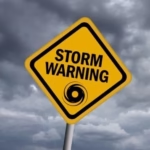Ireland on High Alert: The Surging Mystery of hMPV and How to Protect Yourself
Ireland is on edge, and with good reason—a mystery virus called hMPV (Human Metapneumovirus) has been making its rounds, sparking concern across the nation. If you’ve noticed more people coughing and sneezing or friends cancelling plans because they’re down with something “nasty,” you’re not imagining it. hMPV cases are on the rise, putting additional strain on already stretched healthcare systems.
So, what exactly is hMPV, why the sudden surge, and most importantly, how can you stay safe? Let’s unpack it all.
What Is hMPV?
Before we dive into what’s happening in Ireland, let’s start with the basics—what on earth is hMPV?
Human Metapneumovirus, or hMPV for short, is a respiratory virus that’s been lurking in the shadows for years. First identified in the Netherlands in 2001, it’s been a recurring winter nuisance for countries around the world. Similar to the flu or RSV (Respiratory Syncytial Virus), hMPV spreads through coughs, sneezes, and contaminated surfaces.
Here’s what makes it tricky: its symptoms often overlap with other respiratory viruses.
Common Symptoms of hMPV:
- Cough
- Fever
- Blocked or runny nose
- Sore throat
- Shortness of breath
- Occasionally, skin rash
While most cases are mild, it can cause severe complications like bronchitis or pneumonia, especially in vulnerable groups such as infants, the elderly, and those with weakened immune systems.
Now, let’s examine why Ireland is especially concerned.
The Current Situation in Ireland
Over the past few weeks, Ireland has seen a staggering increase in hMPV cases, and experts are now raising the alarm. While the UK has reported a 4.9% positivity rate (based on tested samples), the numbers in Ireland are catching up quickly, especially with winter well underway.
Why Does This Matter?
The timing couldn’t be worse. With flu season in full swing and healthcare systems already facing intense pressure, the spike in hMPV cases is adding to the chaos in GP offices, hospitals, and emergency rooms across the country. Experts believe the surge may be due to a combination of factors:
| Factors Driving the hMPV Surge in Ireland | Explanation |
|---|---|
| Widespread indoor gatherings | Winter makes social distancing harder |
| Immunity lag post-COVID | Reduced exposure to seasonal viruses in recent years has weakened immune responses |
| Overburdened healthcare system | Long wait times and resource limitations impact early diagnosis and treatment |
In response, Irish health authorities have issued strong recommendations on staying vigilant and hygienic. But what does that mean for you on a practical level?
How to Protect Yourself from hMPV
The good news? While there’s no specific vaccine or treatment for hMPV, there are simple yet effective steps you can take to protect yourself and your family.
1. Stay at Home if You’re Unwell
This might seem obvious, but many people continue with their daily routines even when they’re symptomatic. Do yourself (and everyone else!) a favour—if you have symptoms, stay home until you’ve fully recovered.
2. Practice Excellent Hygiene
Here are the hygiene basics that go a long way:
- Wash your hands frequently with soap and water for at least 20 seconds.
- Use an alcohol-based hand sanitizer if soap isn’t available.
- Cover your coughs and sneezes with a tissue or your elbow (not your hand!).
- Disinfect frequently touched surfaces, like your phone, doorknobs, and keyboards.
3. Mask Up
Wearing a mask isn’t just for COVID. Masks, especially in crowded indoor settings like buses or shopping centres, can reduce your exposure to viral particles, protecting both yourself and others.
4. Strengthen Your Immune System
Think of your immune system as your personal bodyguard—give it the TLC it needs! Stay hydrated, eat a balanced diet filled with fruits and veggies, get enough sleep, and incorporate moderate exercise into your daily routine.
Additional Tips for Staying Safe
- Avoid Crowded Spaces Busy public areas mean a higher chance of encountering someone who may unknowingly be spreading hMPV. If possible, run errands during quieter hours.
- Consider Flu and RSV Vaccines While vaccines for hMPV aren’t available yet, getting vaccinated for flu and RSV can help reduce your risk of severe illness. The healthier you are, the better chance your body has to fight off other infections, including hMPV.
- Know When to Seek Medical Advice If symptoms like shortness of breath or chest pain develop, seek medical assistance immediately. For many, hMPV will pass on its own, but complications can escalate quickly for vulnerable individuals.
Final Thoughts
hMPV may not be a newcomer to the world of viruses, but its sudden surge in Ireland is a stark reminder of how unpredictable respiratory illnesses can be. The key is awareness and action. By following proper hygiene practices, masking up in crowded spaces, and caring for your health, you can minimize your risk of contracting or spreading hMPV.
Remember, it’s not just about protecting yourself—it’s about shielding others, especially the elderly, children, and those with compromised immune systems, from potential harm.
Let’s all do our part to stay safe and help flatten the curve (again).
If you found this helpful, share it with a friend or family member—after all, staying informed is the first step toward staying healthy!
Frequently Asked Questions (FAQs)
Q: What are the symptoms of hMPV? A: The primary symptoms include cough, fever, a blocked or runny nose, and sore throat. In some cases, individuals may experience rashes or shortness of breath.
Q: Is there a vaccine for hMPV? A: No. However, general respiratory vaccines, like the flu shot, can help support your immune system against severe illnesses.
Q: Are masks effective against hMPV? A: No, wearing masks in crowded spaces can not reduce your risk of inhaling viral particles.
Q: How serious is hMPV? A: For most, hMPV results in mild symptoms. However, in vulnerable groups, it can lead to complications such as pneumonia or bronchitis.
Stay cautious, stay kind, and let’s face this head-on, Ireland! 🌟















